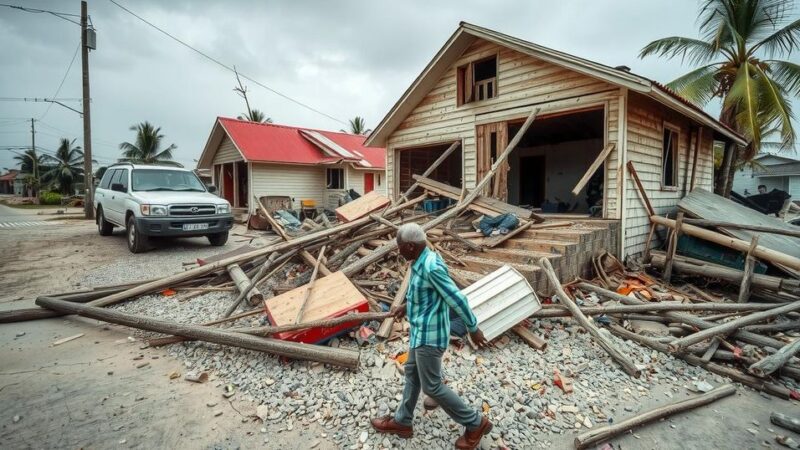Low-lying atoll nations have expanded their calls for a clear legal opinion from the International Court of Justice regarding the obligations of states to combat climate change as they face impending habitat loss due to rising sea levels. During hearings in The Hague, representatives emphasized the immediate dangers they encounter and the need for accountability from major polluters. With an advisory opinion expected soon, these small nations hope to influence international climate policy and negotiations more effectively.
Low-lying atoll nations have appealed to the International Court of Justice (ICJ) for a definitive legal opinion regarding the obligations of countries to combat climate change and the consequences of failing to do so. As sea levels rise threatening their existence, representatives from nations such as Tuvalu and the Marshall Islands argue that inaction constitutes a breach of international law. Testimonies highlighted the severe risks these nations face, compounded by their reliance on donor funding for adaptation efforts that include land reclamation projects intended to bolster their territories against encroaching seas.
The narratives presented during the ICJ hearings starkly contrast the perspectives of industrialized nations, which downplay their responsibilities, with the urgent appeals of developing countries demanding accountability. The upcoming advisory opinion from the ICJ, anticipated in 2025, is expected to provide clarity on international legal obligations, potentially influencing future climate negotiations and actions, especially from top polluting countries, including the United States and China.
The hearings featured testimonies underscoring the dire situation of atoll nations, with Tuvalu stating it would become uninhabitable before complete inundation. Amid rising global temperatures and increasing marine inundation, countries are facing irrevocable changes that threaten their very national sovereignty as rising seas alter their landscapes.
To address their predicament, both Tuvalu and the Marshall Islands are pursuing land reclamation projects but need substantial monetary support to implement these initiatives effectively. The Marshall Islands, for instance, has declared a requirement of approximately $9 billion to reinforce their atolls. The plight of these nations serves not only as a call for immediate action but also highlights the broader implications of climate change that stretch beyond their borders, touching on human rights issues and international law imperatives.
Additionally, representatives from these island nations have implored the international community to act decisively before it is too late, emphasizing that preventive measures must be taken to avoid the catastrophic scenarios portrayed in their presentations at the ICJ.
The International Court of Justice has been approached by various low-lying atoll nations seeking clarification on state obligations under international law in light of climate change. These nations face existential threats due to rising sea levels, prompting discussions on accountability and the responsibilities of major polluters. The ICJ’s advisory opinion will not be binding but could significantly impact international climate negotiations and reinforce the legal basis for climate action and accountability. As climate change leads to severe implications for human rights and the viability of nations, the contrast between industrialized and developing countries becomes stark. Instances of rising sea levels and altered ecosystems have resulted in urgent calls for action from vulnerable nations, highlighting the necessity for support and a shift in responsibilities among nations. The assembly of testimonies during the ICJ sessions emphasizes the immediacy of the climate crisis faced by these atoll states and their pressing need for equitable solutions that address both their immediate survival and long-term sustainability. The hearings reflect a broader narrative of disparity and responsibility, as developing nations seek accountability, and the urgency of their plight resonates globally, drawing attention to the consequences of human activities on climate dynamics.
The request for a definitive opinion from the ICJ on climate obligations underscores the grave challenges faced by low-lying atoll nations in the context of rising sea levels and climate change. As they seek justice and accountability, these nations highlight the need for comprehensive international action to prevent further deterioration of their environments and livelihoods. The anticipated ICJ opinion has the potential to redefine responsibilities among nations and invigorate climate negotiations, emphasizing the critical link between climate action and international law. The plight of these atoll nations serves as a powerful reminder of the urgent need for global cooperation in addressing climate change.
Original Source: www.benarnews.org







